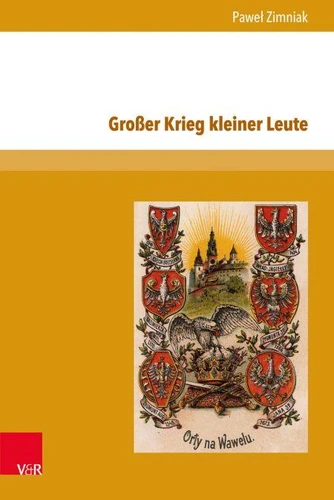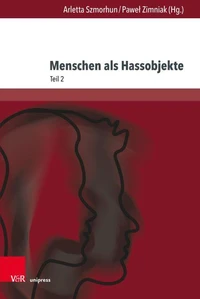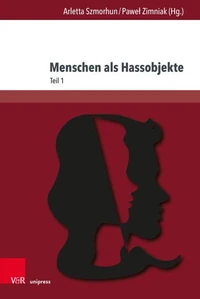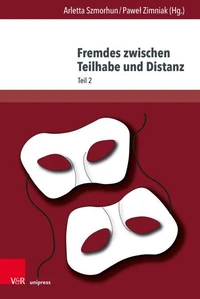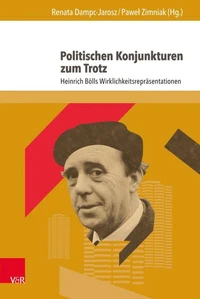Großer Krieg kleiner Leute. Perspektivierungen des Ersten Weltkriegs in der polnischen Literatur 1914–1920
Par :Formats :
Disponible dans votre compte client Decitre ou Furet du Nord dès validation de votre commande. Le format PDF est :
- Compatible avec une lecture sur My Vivlio (smartphone, tablette, ordinateur)
- Compatible avec une lecture sur liseuses Vivlio
- Pour les liseuses autres que Vivlio, vous devez utiliser le logiciel Adobe Digital Edition. Non compatible avec la lecture sur les liseuses Kindle, Remarkable et Sony
 , qui est-ce ?
, qui est-ce ?Notre partenaire de plateforme de lecture numérique où vous retrouverez l'ensemble de vos ebooks gratuitement
Pour en savoir plus sur nos ebooks, consultez notre aide en ligne ici
- Nombre de pages222
- FormatPDF
- ISBN978-3-8470-0558-2
- EAN9783847005582
- Date de parution18/04/2016
- Protection num.pas de protection
- Taille8 Mo
- Infos supplémentairespdf
- ÉditeurV&R Unipress
Résumé
Literary texts in Polish literature written between 1914 and 1920 combine specific meaningful strategies and serve as a medium for transporting collective memories. In them, collectively important places of remembrance are constructed and established in the context of power struggles, interests and group-related needs for meaning. This book focuses on authors like Roman Hernicz, Juliusz Kaden-Bandrowski, Zofia Nalkowska, Edward Slonski, Andrzej Strug, Kazimierz Tetmajer and Stefan Zeromski, who explicitly or implicitly discuss World War II themes in their work.
They present both realistic and critical perspectives on the events and processes of the "Great War" juxtaposed against proleptic, irredentist, patriotic and pathetic points of view.
They present both realistic and critical perspectives on the events and processes of the "Great War" juxtaposed against proleptic, irredentist, patriotic and pathetic points of view.
Literary texts in Polish literature written between 1914 and 1920 combine specific meaningful strategies and serve as a medium for transporting collective memories. In them, collectively important places of remembrance are constructed and established in the context of power struggles, interests and group-related needs for meaning. This book focuses on authors like Roman Hernicz, Juliusz Kaden-Bandrowski, Zofia Nalkowska, Edward Slonski, Andrzej Strug, Kazimierz Tetmajer and Stefan Zeromski, who explicitly or implicitly discuss World War II themes in their work.
They present both realistic and critical perspectives on the events and processes of the "Great War" juxtaposed against proleptic, irredentist, patriotic and pathetic points of view.
They present both realistic and critical perspectives on the events and processes of the "Great War" juxtaposed against proleptic, irredentist, patriotic and pathetic points of view.

